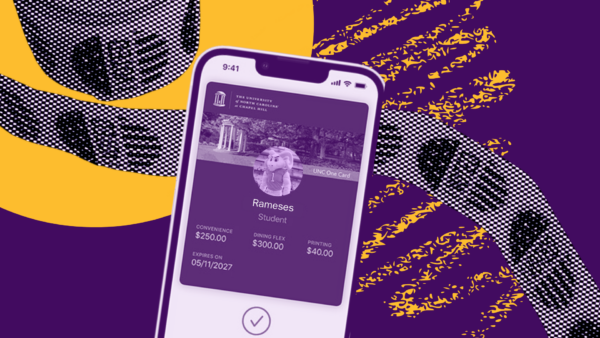RALEIGH, N.C. (Sept. 26, 2024) – The North Carolina Court of Appeals should reject a petition filed by the Republican National Committee and the North Carolina Republican Party that seeks to stop University of North Carolina at Chapel Hill [UNC] students from using their digital Mobile One Cards as identification cards to vote in the 2024 election, according to an amicus brief filed Wednesday.
The brief was filed by counsel from Southern Coalition for Social Justice and Fair Elections Center on behalf of Fair Elections Center and Professor Gunther Peck of the Sanford School of Public Policy at Duke University, in support of the North Carolina Board of Elections and others after the GOP appealed a lower court ruling allowing UNC students to continue to use digital IDs as valid voter IDs in the upcoming election.
Read the full amicus brief here.
“Digital identification cards like the ones used by UNC students are as reliable and secure as physical identification cards—if not more so,” said Patrick Williamson, Counsel at Fair Elections Center. “There are no greater security risks associated with the use of digital identification cards. However, preventing students from using their digital identification cards would almost certainly lead to voter confusion about what form of ID is needed to vote; a lack of clarity around the process for obtaining the necessary ID; and inconsistency in election administration at student voting sites. For these reasons and many more, UNC students should be able to use their digital Mobile One Cards as identification cards.”
The amicus brief outlines research conducted by Professor Peck and students in the Youth Voting Rights Lab at Duke University regarding the potential for voter confusion and disenfranchisement when a university makes multiple forms of student identification available, but not all of those forms are approved for voting purposes — as would be the case at UNC if the UNC Mobile One Card is suddenly stripped of its approval for use as voter photo ID.
Professor Peck and his student co-authors reported on the barriers to voting for students at Duke University during the 2024 Primary election, when Duke had two forms of student identification: a digital identification card that was not approved for voting and a separate physical ID that was.
“Professor Peck’s research underscores the importance of not changing the rules of voting on the eve of an election,” said Jeff Loperfido, Chief Counsel for Voting Rights at Southern Coalition for Social Justice. “A sudden reversal on the approval of the UNC Mobile One Card — the digital identification card held by all enrolled students — would upend the voting plans of an entire community and risk silencing their voices.”
Students’ ability to use digital identification cards is essential to their ability to participate in elections, as students are less likely to possess other forms of acceptable photo ID for voting. For instance, in 2021, only 60% of 18-year-old students had a driver’s license, as compared to 90% of people over the age of 35 who possessed a driver’s license. Other forms of acceptable ID, such as military IDs or state and local government employee IDs, are uncommon among students.
Digital identification cards are also highly secure. There are multiple security protocols in place during the production, issuance, and use of student ID cards like the UNC Mobile One Cards, which makes digital identification cards equally—if not more—secure as physical ID cards.
###
Fair Elections Center is a national, nonpartisan voting rights and election reform organization based in Washington, D.C. that uses litigation, public education, and advocacy to remove barriers to registration and voting, particularly those disenfranchising underrepresented and marginalized communities.
Southern Coalition for Social Justice, founded in 2007, partners with communities of color and economically disadvantaged communities in the South to defend and advance their political, social, and economic rights through the combination of legal advocacy, research, organizing, and communications. Learn more at southerncoalition.org and follow our work on Twitter, Facebook, and Instagram.

